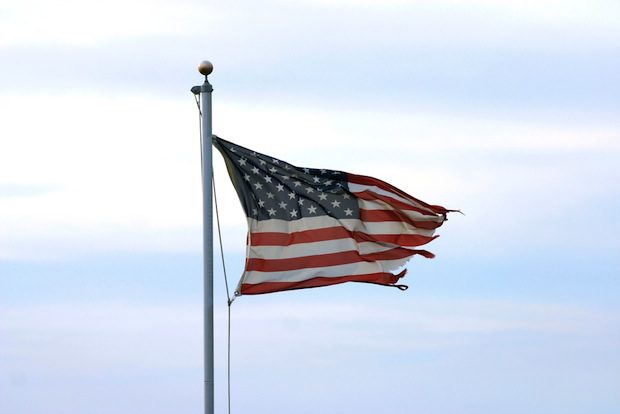America the Untrustworthy

One of the obvious consequences of violating the JCPOA is that the U.S. can’t be trusted to negotiate anything else with Iran:
Zarif told CNN this week Iran had “acted in good faith” in negotiating the deal that Washington abandoned. “We are not willing to talk to people who have broken their promises.”.
Before and during the nuclear negotiations that led to the JCPOA, American opponents of the talks kept insisting that Iran couldn’t be trusted to keep their word and they would cheat on any agreement they made. It is fitting that they have been the ones to urge the U.S. to break its word and betray our negotiating partners, and in so doing guarantee that the U.S. is seen as the unreliable deal-breakers that Iran’s government was supposed to be. In the future, other governments may want to have some “snap-back” mechanisms of their own to ensure that the U.S. will be penalized if it breaches its obligations. Iran hawks are always complaining about the “fatally flawed” nuclear deal, but they are the ones that exploited what was perhaps its only true flaw, namely the built-in assumption that our government would observe the terms of the agreement in good faith as long as Iran did what it promised to do. Other major powers and Iran now know they shouldn’t expect the U.S. to be a reliable partner in future talks, and they will reasonably conclude that offers to “talk” from the administration that seeks to destroy the JCPOA are just so much hot air.
As I was saying yesterday, Iran isn’t interested in photo-op summits:
Trump has said Washington is not trying to set up talks but expects Tehran to call when it is ready. A U.S. official said last week Americans “were sitting by the phone”, but had received no call from Iran yet
Foad Izadi, a political science professor at Tehran University, told Reuters that phone call is not coming.
“Iranian officials have come to this conclusion that Trump does not seek negotiations. He would like a phone call with Rouhani, even a meeting and a photo session, but that’s not a real negotiation,” Izadi said.
A real negotiation would involve making a compromise and offering concessions to Iran. Iran would have to believe that it has something to gain from the exchange, and right now it has no reason to believe anything of the kind. Trump has no desire to make concessions, only to receive them, and he won’t compromise because he can’t conceive of a mutually beneficial agreement. Because he sees everything as a zero-sum contest, Trump perceives anything less than the other side’s capitulation as a “loss” for the U.S. In the absence of a real “win,” Trump is willing to settle for the made-up kind that he claims after every unsuccessful summit.
The next administration will have their work cut out for them. A future president won’t only have to repair the damage to America’s reputation, but will have to rebuild tattered relationships with allies and other major economic powers that have been frayed by years of senseless economic warfare. Over the longer term, the U.S. will face the growing problem that our commitments will be called into question every time there is a change in party control. The seesaw between increasingly hard-line unilateralists that want to tear up one agreement after another regardless of the merits and the rest of us will make it so that no one will be able to trust the U.S. to commit to anything for more than four or eight years. That will give presidents strong incentives not to burn political capital on securing agreements that they know their successors will just throw away, and it will eventually mean that U.S. diplomacy continues to atrophy from lack of use.